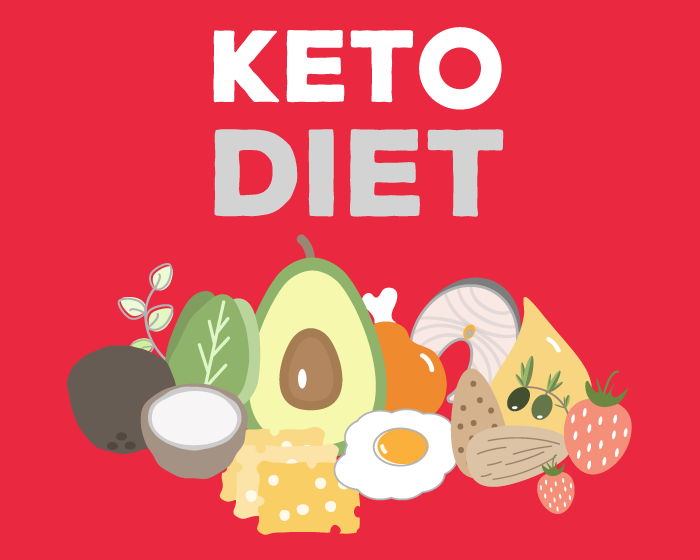If you have weight loss in mind, what should you consume? A diet low in carbs or a diet low in fat. This issue of carbs v/s fat has always been debatable. Most health organizations believe that more dietary fat leads to various health problems such as heart disease. They advise people to restrict dietary fats as much as possible. Ideally, you should consume less than 30% fat in your total caloric intake.
However, some recent studies have challenged this low-fat dietary approach. According to these studies, a low-carb diet rich in proteins and fats is a more beneficial option for treating obesity or other chronic ailments. Let us explore more about these two dietary choices.
Supportive Studies
The following studies were conducted on people facing the biggest health issues such as obesity, metabolic syndrome, and type II diabetes. The parameters under consideration include weight loss, and common risk factors such as total cholesterol, HDL cholesterol, LDL cholesterol, blood sugar levels, and triglycerides.
A randomized group of 63 individuals in New England was put on trial of either a low-carb or a low-fat diet for obesity. After 12 months, the low-carb group reported losing 7.3% of total body weight, while the weight loss in the low-fat group was 4.5%. Conclusively, more weight loss was reported in people on a low-carb diet over 3 to 6 months. The low-carb group also showed improvements in HDL and blood triglycerides.
Another study conducted on 132 severely obese individuals with a BMI of 43 kept on a randomized low-carb or low-fat diet. Some of the subjects had type 2 diabetes while others had metabolic syndrome. Over 6 months, the low-carb group reduced 5.8 kg while the low-fat group reduced 1.9 kg. The low-carb group also showed statistically significant differences in other biomarkers such as reduced triglycerides, improved insulin sensitivity, lower fasting blood glucose levels, and lower insulin levels.
A study was conducted on 30 overweight adolescents randomized to groups of low-carb and low-fat diets to study the effects of a diet on the ability to lose weight and cardiovascular risk factors. After 12 weeks, the low-fat group reduced 4.1 kg while the low-carb group reduced 9.9 kg body weight. Further, the low-carb group showed a significant decrease in non-HDL cholesterol and triglycerides.
A randomized trial was conducted to compare a low-carb diet and a low-fat calorie-restricted diet on 53 obese females. They were randomized into two groups to study the change in body weight and other cardiovascular risk factors. After 6 months, the low-carb group reduced 8.5 kg while the low-fat group reduced 3.9 kg (8.6 lbs). The low-carb group also showed a significant reduction in blood triglycerides.
60 overweight individuals were put on trial for a calorie-restricted low-fat diet recommended by the national cholesterol education program and a calorie-restricted low-carb high protein diet rich in monounsaturated fat. After 12 weeks, the low-carb reduced 6.2 kg while the low-fat group reduced 3.4 kg. Statistically significant differences were observed in other biomarkers as well.
A low-carb ketogenic diet and a calorie-restricted low-fat diet were tested on 120 overweight people with elevated blood lipids. After 24 weeks, the low-carb group reduced 9.4 kg in comparison to 4.8 kg in the low-fat group.
Another study on 28 overweight individuals confirmed the findings. They were randomized in groups of energy-restricted low-carb and low-fat diets. Results were collected after 30 days for women and 50 days for men in each group. The low-carb group reported significant weight loss, especially in men.
The majority of studies reflected statistically significant differences in terms of weight loss and several other biometric factors. It has been observed that the low-carb groups lost significantly more weight in comparison to the low-fat groups. In many studies, low-fat groups were kept on a calorie-restricted diet while the low-carb groups were allowed to eat to their content.
Further, when both groups were kept on calorie-restricted diets, the low-carb groups still reduced more weight. In many studies, there was notable weight loss in the beginning. However, they started to regain weight over time once they abandoned the control diet.
Low-carb diets also showed clear advantages for the reduction of abdominal fat. Two primary reasons for the effectiveness of the low-carb diets for weight loss are their appetite-suppressing effects and high protein contents which leads to an automatic calorie reduction.
How Diet Affects Biomarkers?
Your intake of low-carb or low-fat diet directly influences different biomarkers.
- LDL Cholesterol – It has been observed that low-carb diets do not raise LDL and total cholesterol levels. In turn, they may help to reduce the levels in 6 to 12 months.
- HDL Cholesterol – You can raise your HDL cholesterol levels by eating more fat. Low-carb high-fat diets can raise HDL levels significantly in comparison to low-fat diets. High HDL levels correspond to improved metabolic health and reduced risk of cardiovascular diseases.
- Triglycerides – Higher triglycerides may increase the cardiovascular risk factor and cause metabolic syndrome. You can reduce triglycerides by reducing carbohydrates and sugar in your diet.
- Insulin levels, blood sugar, and type 2 diabetes – In non-diabetic groups, both insulin levels and blood sugar seem to improve on both low-fat and low-carb diets. Studies were conducted to see the effects of the diets on patients with type 2 diabetes. According to a study, patients on a low-carb diet showed a significant reduction in carbohydrates and a drastic reduction in HbA1c marker for blood sugar level. They also managed to reduce their diabetes medications.





